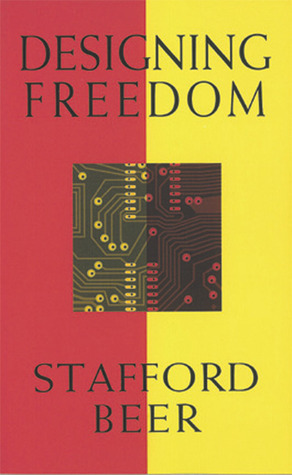What do you think?
Rate this book


110 pages, Paperback
First published January 1, 1974
"There is an evident risk in installing a model of the public in the computer, since the return loop might be misused by a despotic government or an unscrupulous management. In considering this however we need to bear in mind the cybernetic fact that no regulator can actually work unless it contains a model of whatever is to be regulated. Much of our institutional failure is due to the inadequacy of the contained models. It is perhaps more alarming that private concerns are able to build systems of this type, without anyone's even knowing about their existence, than that democratically elected governments should build them in open view and with legal safeguards."On the governance of the Chilean systems, Beer recounts as follows:
“In the few months that remained to us, we were teaching the workers, for whom this offering of science to the people was created, how to use the most advanced tools yet designed for national economic management. They could sit with their ministers in the economic operations room in Santiago, watching the animated screens, and discussing the alerted signals provided daily by that clever computer program. They had buttons in the arms of their chairs, so that they could command the appearance on other screens of supporting data- to the capacity of 1.200 different colour presentations, focused on sixteen back-projectors. They could also control preliminary experiments in simulation, on a huge animated model of the dynamic system. These people, arm in arm with their science, were intended to become the decision machine for the economy.”Three things strike us here: the use of sophisticated dynamic models to anticipate future developments, the reliance on discursive processes to make sense of this information and to decide on what actions to take, and, last but not least, the governance and ownership of this system by citizens, not technocrats. Much could be said for and against this approach but there is no doubt that it is worth thinking through as a potentially enticing alternative to the current, ineffective, wasteful and opaque way of running our common affairs.